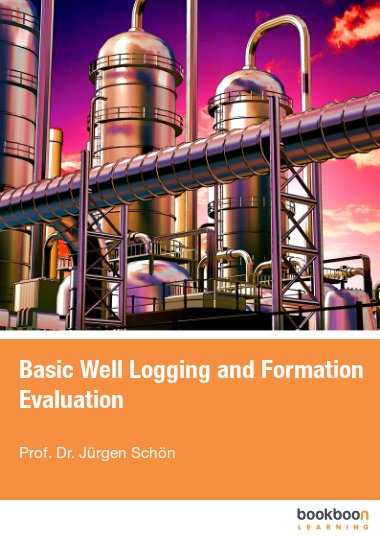The textbook is addressed to students of applied geosciences and petroleum engineering.
Subject are the fundamental techniques of well logging/borehole geophysics and the interpretation of measured data (formation evaluation). Examples with an exercise part (sandstone reservoir, shaly sand interpretation, complex mineralogy of a carbonate reservoir) help to understand the different methods and algorithms.
The user will learn
- reservoir properties (porosity, saturation, fluids, permeability, capillary pressure),
- the physical background of well logging methods and the response with respect to reservoir characterization (physical principle, primary information from logs),
- rules for optimal log combinations, basic equations and models, fundamental techniques of log interpretation.

